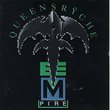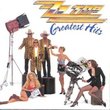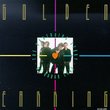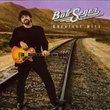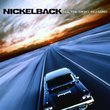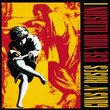| All Artists: Rush Title: Vapor Trails Members Wishing: 2 Total Copies: 0 Label: Wea Original Release Date: 1/1/2002 Re-Release Date: 5/20/2002 Album Type: Import Genres: Rock, Classic Rock, Metal Styles: Progressive, Progressive Rock, Progressive Metal, Album-Oriented Rock (AOR), Arena Rock Number of Discs: 1 SwapaCD Credits: 1 UPCs: 075678353123, 075678374029, 4988029871183, 075678353161, 766489355924 |
Search - Rush :: Vapor Trails
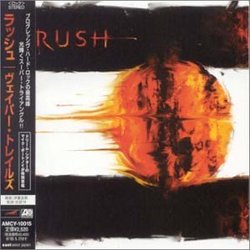 | Rush Vapor Trails Genres: Rock, Classic Rock, Metal
|
Larger Image |
CD DetailsSimilarly Requested CDs
|
Member CD ReviewsReviewed on 2/20/2008... Worst Rush album ever recorded. The songs all sound the same from the first to the last. Very un-original, noisy and non-musical. Impossible to find a melody to remember on there. Stay away!!! 2 of 4 member(s) found this review helpful.
CD ReviewsMarred by Lousy Mastering foreverreal | Stafford, TX United States | 06/22/2003 (4 out of 5 stars) "Really 3.5 stars... With the release of _Vapor Trails_, Canadian progressive rock masters Rush have reinvented themselves once again. Never content to simply rely on constantly reusing a single formula to achieve their artistic expression, not to mention their incredible commercial success, guitarist Alex Lifeson, bassist/vocalist/erstwhile keyboardist Geddy Lee and drummer/lyricist Neil Peart have returned to the standard power trio format that put them on the map in the mid-1970's, with perhaps their heaviest album ever._Vapor Trails_, Rush's 17th studio release in 18 years and the band's first studio release since 1996's _Test for Echo_, was received by fans with great expectation, and some mixed reviews. More than anything, the long layoff was due to personal hardships endured by drummer Neil Peart who lost his wife to cancer and his daughter to a fatal car accident within about a year of one another. Peart was so devastated by the loss of his family that this consummate drummer, who is widely renowned for his work ethic, did not pick up a drumstick for something like two years.After Peart had recovered sufficiently from these losses, the band began writing new material, primarily by sharing tapes with one another, with a "no pressure/expectations" attitude that the process would either result in an album or not. In interviews, members of the band have stated that until a certain point, well into the writing process, the band's future was still undecided. In the course of working out the material, Geddy Lee's keyboards, which had grown from sparse use on 1977's _A Farwell to Kings_, and evolved into a dominant aspect of the bands sound by the early 1990's, were abandoned. This lack of keys and the songwriting, brought about in large part by Peart's hardship and his largely solitary reconstruction of himself, are, I think the two primary things that lend to Rush's most guitar-driven, visceral and emotionally open album to date.Personally, I think that the 13 tunes offered here easily stand up to the vast majority of mass-marketed drivel that constitutes today's popular music scene. (Yeah, I am opinionated.) From the frenzied opening double kick-drum/distorted guitar onslaught of "One Little Victory" to the jangly and popish "How It Is" and on to the brilliantly written, building "Secret Touch," Rush - the band that, along with Yes, King Crimson, ELP and a handful of others put prog rock on the map - delivers an assortment of well written tunes, brilliantly executed by a trio of virtuoso rock musicians. I honestly don't think many will like all 13 cuts on this album (personally, I'm not that fond of "Ghost Rider" and "Freeze"), but I would guess that most Rush fans would end up liking at least 8 to 10 songs.The following might be more info than you want to bother with, but people have brought up the album's sound quality. I agree that it is an issue and this is just an attempt to explain what I think is going on...Sonically, the problem with _VT_ is that it is mastered too loud. (Mastering is the process wherein the finished stereo mixes: receive final equalization, as well as, relative and overall level adjustment, are ordered, track gaps and crossfades set, etcetera.) Recent years have seen breakthrough technology emerge in the world of digital audio, which, among other things has revolutionized digital compression and "brickwall limiting" (the two most common techniques for increasing the average level of audio program material, and therefore, perceived volume of a CD). This, in turn, has made albums louder and louder each year in contest that began about a decade ago.For better or for worse, this album was not mastered by any of the gurus of the trade (like Bob Ludwig or Bernie Grundman to name a couple) and I think it suffers for it. There are plenty of albums that are as loud as _VT_, and a few that are even louder, but many of them sound a lot better. The compression artifacts from the signal level processing, not to mention some poor final EQ choices (the exact problems) are absurdly evident to the trained ear, and sound bad to most people, whether or not they have the audio engineering experience to identify them with precision. I think it is really fair to say that the mastering job on this album is the easily one of the worst I've heard on a significant major label release...ever!Rush are veterans of the studio, and Paul Northfield is a talented and experienced producer and audio engineer. Both have turned out consistently high quality recordings over long careers and it's not likely that these mixes were mediocre product. Honestly, it is actually not possible to objectively judge the mixes that came out of the studio once they have been mastered. A skilled mastering engineer can turn mediocre mixes into outstanding final product and, clearly, that level of technology, in the wrong hands, can destroy a fine recording. I think that is what has happened here. (This is likely the result of pressure from the label in an attempt to position the album to compete for the dollars of the younger segment of Rush's fan base, who generally listen to new, loud CD's.)Poor sonics notwithstanding, with _VT_, Rush has made a powerful, personal and appropriate musical statement a time in the band's history that represents a definite personal and career crossroads. While it may not be their best ever, _VT_ is a very good album by an excellent band that has deservedly earned a place in history as one of the greatest progressive rock bands ever. It's really a shame it doesn't sound better...PS - if you are new to the band you might prefer one of their definitive classics: _2112_, _A Farewell to Kings_, _Hemispheres_, _Permanent Waves_, and/or _Moving Pictures_." They're back John S. Ryan | Silver Lake, OH | 08/29/2004 (5 out of 5 stars) "If all you can hear in this CD is a bunch of noise, well, you need to give it a few more listens, that's all. Leapin' lizards, Sandy, this is Rush, after all.
They almost caught me like this once before, when they shifted their sound in the mid-1980s. I didn't (and don't) especially care for the U2-meets-Duran Duran sound they adopted at that time, but did it mean they'd 'sold out'? Let's not be silly, folks; Rush have never come within fifty miles of selling out. And whether their '80s material represented my favorite sound or not (and believe me, I'm under no illusion that Rush spend their time in the studio trying to record stuff that specifically pleases _me_), that period included some of the finest _writing_ these guys have ever done. (Their _haircuts_, on the other hand . . . well, never mind.) Now they've shifted again -- this time after a six-year hiatus. Bassist Geddy Lee is doing a lot of chording way down there in the bottom end, and guitarist Alex Lifeson is filling about 65% of the CD with such a fuzzed-out wall of noise that it sounds like the music has been invaded by a county-sized swarm of angry killer bees. So Rush have become just another alternative band with a slightly-behind-the-trends 'grunge' sound -- right? Sure, kids. Now go back to your Tool CDs and let the grownups listen in peace. [EDIT: I'm not knocking Tool here, as one or two commentators on this review seem to think. I like Tool. I'm just poking fun at the notion that Rush are following a trend and have become just another band in some genre or another.] Percussionist/lyricist Neil Peart's lyrics have gotten steadily darker, more oblique, and more personal over the last two decades. Here, no doubt owing in large measure to his personal tragedies of 1997-98 (which we don't need to relive here), he's written some of his most sharp-edged material; on some of these lyrics you can actually cut yourself. I won't say it's the very best stuff he's ever written (and I won't say it's not) -- but if you've ever liked Peart's lyrics, you should like these. A lot. Almost every Rush album -- certainly every one since _Permanent Waves_ -- has a thematic unity that's captured in the title (and Hugh Syme's marvelous cover art). On _Signals_ it was success and failure in communication; on _Roll the Bones_ it was the taking of risks; on _Counterparts_ it was the mysteries of relationships (mostly romantic); and so forth. Here, surprise surprise, it's transitoriness and evanescence against a backdrop of permanence. ('The Stars Look Down' may -- I don't actually know -- have been inspired by a remark of Emerson's about a time when he rushed out of a meeting very excited about something or other and looked up at the night sky: the stars, he said, seemed to be looking down at him and saying, 'Why so hot, little man?') So what's up with the music? Well, I'm afraid it's hard to do that sort of thing justice in a verbal review; all I can say here is that you should keep listening. It really does make sense after you listen to it a few times (and the lyrics are _much_ better matched to the music than I thought on my own first pass through it). Yes, it takes several listens; can you name a Rush album that didn't? Yes, Lee's voice is sometimes hard to make out through the wall of industrial noise; what was the last Rush release we could listen to _without_ the lyric sheet open in front of us? For thirty years these guys have been releasing albums, and for thirty years every one of them has been greeted by _somebody_ with 'Well, that's it; the Rush we knew and loved is dead and gone, and this clunker will clearly be their last recording.' It ain't so. I think some listeners somehow expect Rush to sit aloof from all popular musical trends and hand down songs from Olympus or something. Those listeners are bound to be disappointed. These guys do listen to other people's music, they do like some of the things they hear, and they do adapt other musical idioms to their own ends. They've done it for thirty years and they're still doing it here. That doesn't make them anybody's camp followers. It's Rush. It's good. It's that simple." |

 Track Listings (13) - Disc #1
Track Listings (13) - Disc #1